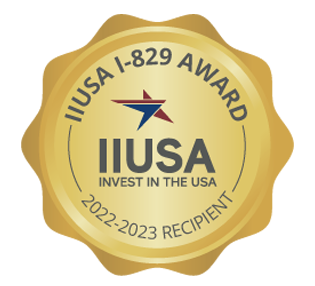H.R. 2315: Ending the OPT Program Could Undermine U.S. Higher Education, Workforce, and Global Competitiveness
A new bill introduced in the U.S. House of Representatives, named H.R. 2315: Fairness for High-Skilled Americans Act of 2025, seeks to terminate the Optional Practical Training (OPT) program, a vital pathway that allows international students to gain work experience in the United States after graduating. If passed, this legislation could have far-reaching consequences not only for international graduates, but also for U.S. universities, employers, and the broader economy.
OPT: A Bridge Between Graduation and the H-1B Lottery
Under the current system, OPT allows F-1 visa holders to work in the U.S. for up to 12 months (and up to 36 months for STEM graduates) after completing their degrees. This period serves as a crucial bridge between graduation and the annual H-1B visa lottery, which typically occurs the following spring. Without OPT, international students would have to leave the U.S. immediately after graduation and apply for the H-1B visa from abroad, significantly reducing their chances of gaining sponsorship and long-term employment.
Impact on International Students
Ending OPT would put international students in an extremely difficult position. Many of them choose to study in the U.S. not just for the academic experience, but with the aspiration to gain professional exposure and build careers in their field. Without the opportunity to work after graduation, students may opt for universities in other countries like Canada, the UK, or Australia, which offer more supportive post-graduation work options.
The return on investment for a U.S. degree declines, especially considering the high cost of tuition, living expenses, and the sacrifices many students and families make to pursue education in the U.S.
A Threat to U.S. University Admissions
This bill could also significantly impact U.S. university admissions. A substantial portion of international applicants weigh post-graduation work opportunities as a key factor when choosing where to study. If the OPT program is eliminated, the U.S. may become a less attractive destination, leading to a decline in international enrollment, which would hurt university revenues and reduce the cultural and intellectual diversity on campuses across the country.
U.S. Employers and the Talent Pipeline
OPT doesn't just benefit students, it’s also a crucial tool for employers to assess recent graduates in a real-world setting before sponsoring them for long-term visas. Without OPT, companies would have limited or no opportunity to evaluate candidates’ performance on the job before making costly and competitive H-1B sponsorship decisions.
Without the OPT, the U.S. would risk losing out on highly skilled global talent, especially in STEM fields, with a growing demand for skilled workers.
Reform, Not Removal: Introducing a Prevailing Wage Requirement
One of the key criticisms from proponents of H.R. 2315 is that the OPT program may allow companies to hire international students at lower wages, undercutting American workers. However, rather than eliminating the program altogether, a more balanced and productive approach would be to reform OPT by introducing a prevailing wage requirement similar to the H-1B program.
This reform would ensure that international graduates are paid fairly and on par with U.S. workers, directly addressing concerns about wage suppression while preserving the critical role OPT plays in the immigration and talent pipeline. Such a measure would protect the integrity of the U.S. labor market without jeopardizing the futures of thousands of international students or the strategic interests of U.S. higher education and industry.
A Potential Solution: EB-5 Concurrent Filing for Adjustment of Status
While H.R. 2315 has sparked concern and uncertainty among international students, some may explore alternative pathways that offer more stability and long-term opportunity. One such option is the EB-5 Immigrant Investor Program, which now permits concurrent filing of adjustment of status (Form I-485) for eligible individuals already in the U.S. on valid visas such as F-1 for international students.
This concurrent filing allows applicants to simultaneously apply for employment authorization (EAD) and advance parole, enabling them to live, work, and travel legally in the U.S. while their green card application is pending. Though the EB-5 visa involves a significant financial investment, it can provide an important safety net for families who want to ensure their children can remain in the U.S. after graduation, particularly if OPT is no longer available. Learn more about the EB-5 Visa for international students and its advantages.
Conclusion
H.R. 2315 may have been introduced with the intent to protect U.S. workers, but its consequences would reverberate across multiple sectors, hurting international students, U.S. employers, and academic institutions alike. Rather than dismantling a program contributing to America’s innovation and diversity, policymakers should focus on thoughtful reforms that maintain fairness while supporting the country’s global leadership in education and innovation.
For those navigating the uncertainty around the bill, immigration alternatives like the EB-5 visa with concurrent adjustment of status offer one potential avenue to maintain stability and continue contributing to the U.S. economy and society. As the debate over H.R. 2315 continues, one thing remains clear: ending OPT is not just an immigration issue: it’s an economic, educational, and diplomatic one.
For a Free Consultation with an Experienced EB-5 Professional Enter your Details
Disclaimer
The opinions expressed in this video/blog post are solely those of the presenter/author. The information provided herein is for general informational purposes only and should not be considered as professional or legal advice. The presenter/author or Golden Gate Global do not endorse or take responsibility for any actions taken based on the information presented herein. Viewers/readers are advised to seek appropriate professional advice before making any decisions or taking any actions based on the content of this video/blog post.


